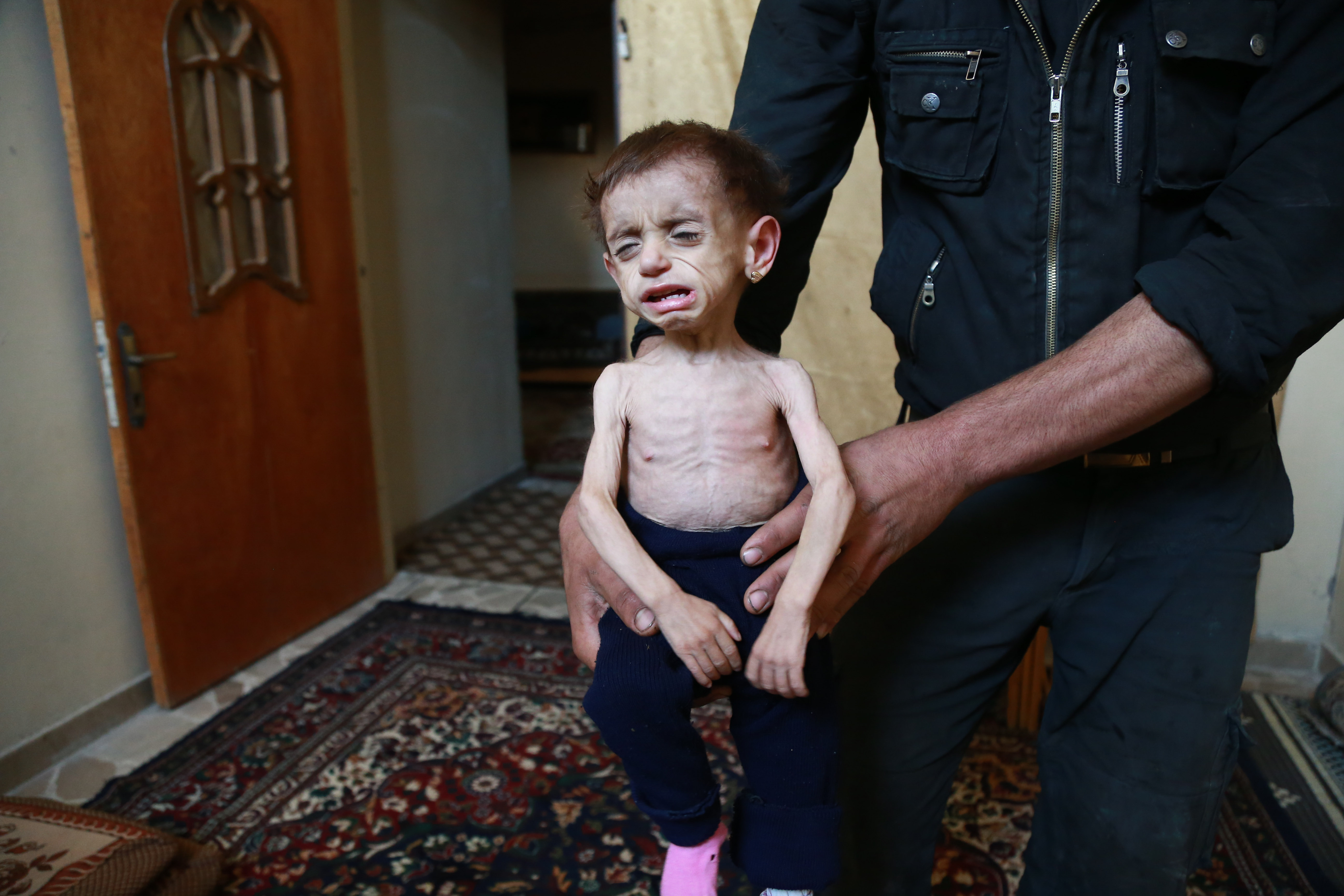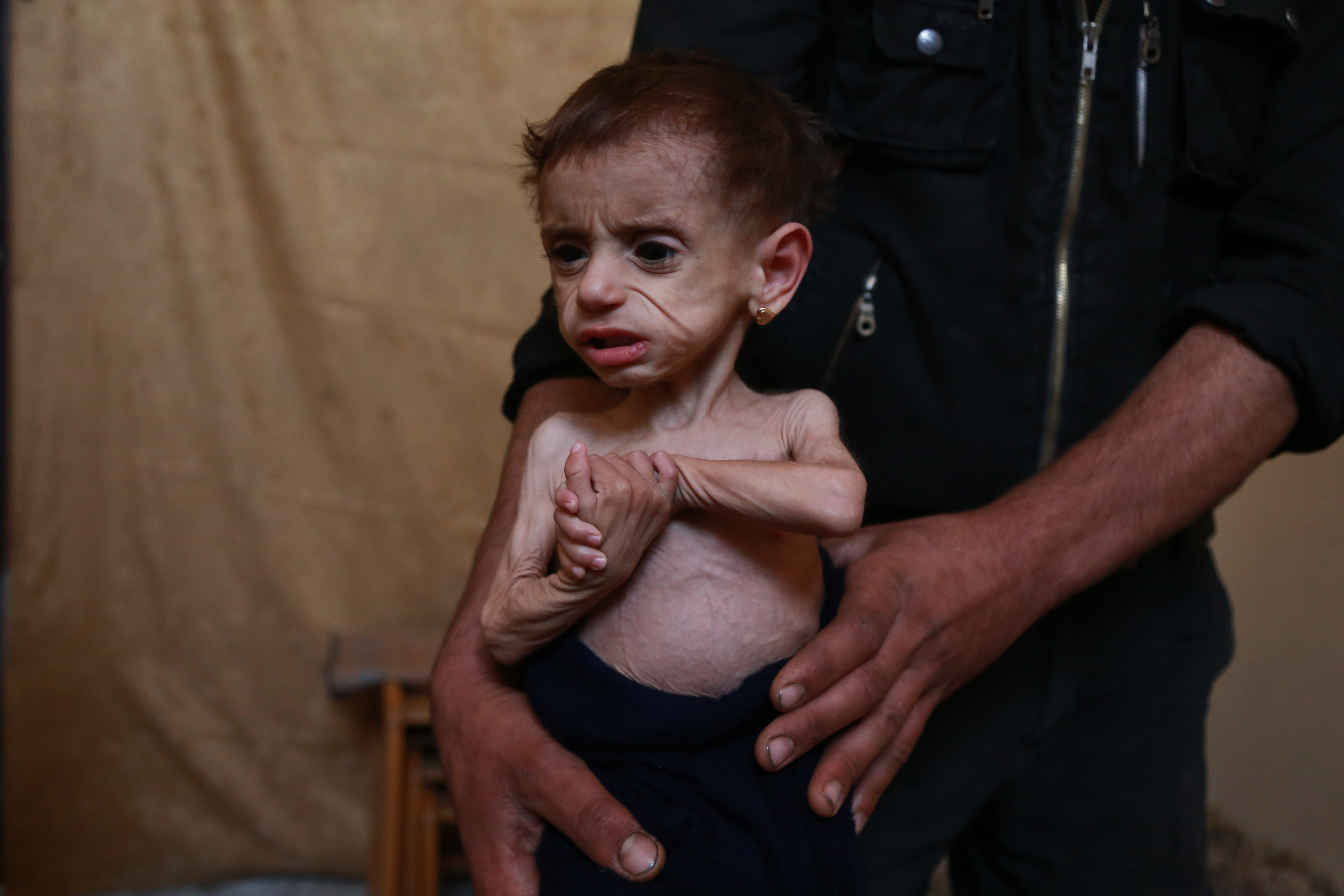October 25, 2017
Hala al-Nufi is 2 years old. She weighs 4.10 kilograms (9 pounds). Since the age of seven months, Hala has struggled with health problems, according to her mother, Um Sayyah. Around that time, Um Sayyah was able to take her to daughter to Damascus to seek medical care through tunnels between East Ghouta and Damascus. Damascus is a mere 10 kilometres away, but an entirely different world.
“Hala spent 5 months at a hospital in Damascus receiving treatment. We were happy that her condition improved and were able to get back home to Sabqa in East Ghouta,” said Um Sayyah.
However, the family’s happiness was short-lived.
Since then, the tunnels – the only lifeline out of besieged East Ghouta – have closed, making it difficult for its residents to access food and medical care. All roads to and from Damascus are now blocked. The absence of specialized medical care, coupled with the lack of basic materials such as milk and vitamins, led to a precipitous decline in Hala’s health. In order for her health condition to improve, Hala needs treatment and nutrition to combat her symptoms. Because of the siege, she can access neither.
After a four-year blockade, residents of East Ghouta have little access to healthcare for everything from chronic conditions to acute malnutrition. Just 107 doctors remain to treat the population of 400,000.
“When Hala was in Damascus receiving the treatment she needed, her weight went up to 6 kilos and 8 grams. Today, Hala suffers from acute malnutrition due to the lack of nutrients and food supplies she needs to survive,” said Um Sayyah.
Dr. Amani Balour, a pediatrician in East Ghouta, said that people are shocked by the images of malnourished children in East Ghouta. For those familiar with the deprivation of East Ghouta, the increasing rate of malnutrition is hardly a surprise. The people of East Ghouta live in extremely dire conditions, struggling to provide food for their families. Children have no access to essential nutrients to boost their immune system and ward off disease and infection. A “healthy” child in East Ghouta is still at the extremely low end of the normal weight range for their age.
In addition to the lack of nutrition for infants, mothers also lack the crucial nutrients that allow them to carry their babies to term, and to breastfeed them. The access to prenatal care is non-existent, and many babies are born premature or weak.
Doctors are desperately trying to bolster the health of the population, but they simply cannot access needed supplies and medication, especially for children. These tragic circumstances have led to the increase in child deaths.
Prior to the closure of all roads and tunnels, the people of East Ghouta were able to smuggle food into the area. Even if it was in small quantities, they were able to feed their children more consistently. Now, things have shifted – the situation in East Ghouta has reached a breaking point.
“Because of the ongoing and inhumane siege, children are the victims. They are the ones paying a very high price for a conflict they have nothing to do with, “ said Dr. Balour.





